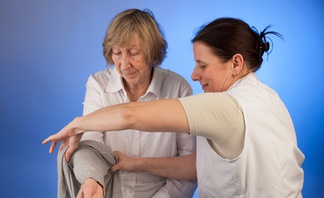How much private in-home care costs
The cost of in-home care for the elderly depends on the type of services you need and your geographical location. Let’s jump right into the types of home care services and their average price.
Types of home care services
-
Non-medical home care
Non-medical care usually includes such services: companionship, shopping, cooking, housekeeping, transportation, laundry, etc. In most cases, you pay hourly and the minimum time is 2 hours. The average price for such services ranges from $16 to $27 per hour.
-
Home health care
Home health care includes the following types of assistance: blood pressure monitoring, helping with medical equipment, physical therapy, speech therapy, monitoring chronic conditions, psychiatric care, etc. The national average price for such services is $16 - $27 / hour depending on the state.
-
Adult day care
Adult day care is a more expensive type of service (5-15% more) when compared to others. They are designed for older adults who require supervised care during the day. Adult day care is a planned program of social activities aimed at improving both mental and physical health (e.g. social activities, nutrition, exercise programs, health services, etc.)
Types of rates
The rates of in-home care services will depend on the type of agency, your requirements/preferences, and the services you need. Usually, there are 3 types of them:
-
Hourly rates
Independent seniors usually don’t need 24/7 assistance. They may order one or several services (such as cooking or housekeeping) at any day of the week and pay for the hours. Different agencies have an established minimum number of hours. The price in the USA ranges from $14 to $26 per hour.
-
Daily rates
If your relative needs an assistant for the whole day, then you’ll be given a daily rate. Depending on the state and agency, the price ranges from $180 to $350 per day.
-
Overnight rates
Overnight services are provided to seniors who need assistance from a professional at night (e.g. people with Alzheimer’s, dementia, insomnia, etc. ) Usually, the cost of such services ranges from $100 to $200 for 10-12 hours.
Comparison of prices for elderly home care services
Take a look at this table that compares the prices for in-home senior care for all states in the USA.
Here are the states with the most expensive in-home care rates:
-
North Dakota $27.96
-
Washington $26.50
-
Alaska $26.00
-
Minnesota $26.00
-
Wyoming $26.00
-
Hawaii $25.25
-
Massachusett $25.25
-
California $25.00
-
New Hampshire $25.00
-
South Dakota $25.00
-
Vermont $24.25
-
Oregon $24.00
-
"Colorado $23.98
-
Iowa $23.50
-
Wisconsin $23.50
-
Maine $23.00
-
Nebraska $23.00
-
Rhode Island $23.00
-
Montana $22.98
-
New York $22.50
-
Utah $22.50
The less expensive rates are in the following states:
-
Delaware $22.00
-
Illinois $22.00
-
Nevada $22.00
-
New Jersey $22.00
-
Pennsylvania $22.00
-
Maryland $21.73
-
Idaho $21.25
-
Arizona $21.00
-
Michigan $21.00
-
Ohio $21.00
-
Missouri $20.44
-
Connecticut $20.00
-
District of Columbia $20.00
-
Indiana $20.00
-
Kansas $20.00
-
New Mexico $20.00
-
Oklahoma $20.00
-
Virginia $19.86
-
Texas $19.50
-
Kentucky $19.38
-
Florida $19.25
-
Georgia $19.00
-
South Carolina $19.00
-
Tennessee $18.60
-
Arkansas $18.00
-
North Carolina $18.00
-
Mississippi $17.69
-
West Virginia $17.00
-
Alabama $16.85
-
Louisiana $15.00
How to calculate the price
Here are the main factors to take into account when calculating the price for home senior assistance.
-
Your state and region
-
The client’s health
-
Type of home care services
-
A frequency of home care services
Services of home care agencies are extremely diverse: from meal preparation to medical / healthcare assistance. But all they are united in one common mission: improve the quality of life during the aging process.
Be meticulous when choosing an assistant for your loved ones, don’t be afraid to ask questions, request references, and dig deeper into the agency’s processes - this is a key to effective caregiving.





